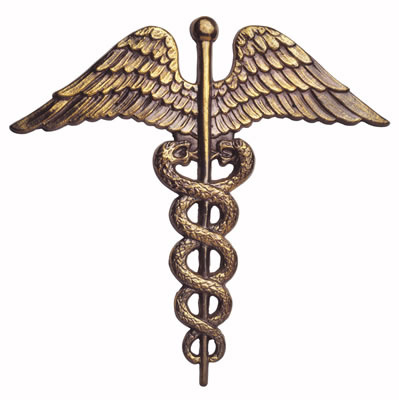 |
| Offsetting Your Share of Cost |
A Share of Cost (SOC) is the amount that an individual with a higher income level must pay every month for Medi-Cal and IHSS, similar to a monthly deductible. Consumers who have a high SOC often find it difficult to meet their other monthly expenses. Some of these individuals may be able to spend down their income (i.e., by purchasing additional health insurance, purchasing dental insurance, etc.) so that they become eligible for a zero SOC Medi-Cal program such as the Aged and Disabled Federal Poverty Level Program. Others may be able to qualify for the 250% Medi-Cal Working Disabled Program, through which they would pay a low monthly premium rather than a higher SOC.
For some consumers it may be beneficial to find other cost-cutting resources to help offset their SOC expenses. Below are two examples of how consumers may be able to save:
Food Stamps
 Seniors and persons with disabilities who have a Medi-Cal SOC are generally eligible for assistance through the food stamp program. Individuals who qualify receive a plastic card, similiar to an ATM card, which can be used to purchase everyday foods. Maximum benefit levels are $200/month for an individual and $367/month for couples. If approved, your Medi-Cal SOC can be used as a deduction when determining your benefit amount.
Note: Individuals who are on Medi-Cal with a $0 SOC, and who receive SSI/SSP, are not eligible for food stamp benefits.
Low-Income Home Energy Assistance Program
The Low-Income Home Energy Assistance Program (LIHEAP) provides heating and cooling assistance to low-income seniors, persons with disabilities, and families with young children. The program will pay for costly utility bills once a year for those who qualify.
For more information, or to find out if you qualify, visit the Department of Community Services and Development website at www.csd.ca.gov/programs. For additional information on these and other cost-saving programs, contact PASC at 877-565-4477 and ask to speak to a member of the Information and Referral Team. For more information on the Aged & Disabled Federal Poverty Level Program and the 250% Medi-Cal Working Disabled Program, visit www.db101.org or contact your Medi-Cal eligibility worker. Back to top |
| Update on New Enrollment Regulations for IHSS Providers |
As reported in last month's edition of PASC E-News, new enrollment regulations for IHSS providers were implemented on November 1st. Under the new regulations, all providers must complete an orientation, submit to and pass a Criminal Background Investigation as administered by the Department of Justice (DOJ), and complete the newly revised provider enrollment forms. This could have an impact on who you choose to hire as your provider, how quickly that individual will get paid, and how soon the provider can begin to assist you. ( Click here to view last month's article on the new requirements). PASC is working as quickly as possible with the Department of Public Social Services (DPSS) to finalize the details of how these new requirements will be implemented. As additional information becomes available, it will be posted on PASC's website at www.pascla.org.
In the meantime, please keep in mind that, if you hired and had your provider registered with DPSS before November 1st, he/she will have until June 30, 2010 to meet the new enrollment requirements. If you are looking to hire a new provider, you may wish to utilize the PASC Homecare Registry, as providers listed on the Registry have already passed a Criminal Background Investigation and will be able to begin working for you immediately. For more information on using the Registry, please give us a call at 877-565-4477.
|
| Court Order Halts New Provider Regulations Regarding Felonies |
 One of the new requirements for IHSS providers implemented on November 1st states that an individual cannot be paid as an IHSS provider if he/she has been convicted of or incarcerated for any felony, or certain misdemeanors. On November 25th, a California Superior Court judge ordered a temporary halt to this requirement and ruled that the state must specify which felony convictions would apply under the new law. In addition, the judge ruled that the new provider enrollment form must be revised so that providers are not required to disclose under penalty of perjury any felonies on their records. One of the new requirements for IHSS providers implemented on November 1st states that an individual cannot be paid as an IHSS provider if he/she has been convicted of or incarcerated for any felony, or certain misdemeanors. On November 25th, a California Superior Court judge ordered a temporary halt to this requirement and ruled that the state must specify which felony convictions would apply under the new law. In addition, the judge ruled that the new provider enrollment form must be revised so that providers are not required to disclose under penalty of perjury any felonies on their records.
The judge's ruling is temporary. An additional hearing will be held on January 29th to determine if the judge's ruling is permanent.
|
Do you have questions about PASC and the IHSS Program? Do you have suggestions for topics to be covered in the PASC E-News? Send your questions and suggestions to e-news@pascla.org. PASC E-News is designed for you to get the information you need! Note: If you do not wish to receive future editions or would like to update your profile with us, please scroll down to the bottom of this message and click on either " SafeUnsubscribe" or " Update Profile/Email Address." |
| Should You Get the H1N1 Vaccination? |
According to the Centers for Disease Control and Prevention and the Los Angeles County Department of Public Health, people 65 years and older are among the least likely to be infected with the H1N1 virus (commonly called swine flu). Because supplies of H1N1 vaccinations have been low, it is recommended that, unless an individual is in one of the below priority groups, he/she should wait to get vaccinated until more doses are available. Current priority groups include: 
- Pregnant women
- People living with or caring for infants under 6 months of age
- Children and young adults from 6 months through 24 years
- People aged 25 through 64 with a chronic medical condition or weakened immune system
- Healthcare and emergency services workers with direct patient contact
It is important to remember that the H1N1 flu is different than the seasonal flu. Persons 65 and older are still considered high priority for seasonal flu vaccinations, as they have an increased risk of complications from seasonal flu.
If you need advice on whether you should be vaccinated for either the H1N1 flu or seasonal flu, talk to your doctor.
Back to top
|
| Healthy Aging (Health Promotion and Disease Prevention) |
There are many factors that influence the aging process. Developing healthy habits and incorporating them into one's lifestyle can help prevent disease and promote aging in a healthy way. A few factors that can prevent disease and promote health include:
Regular exercise - Physical activity can reduce the risk of heart disease, colon cancer, high blood pressure, diabetes and symptoms related to anxiety and depression. Exercise can also help control weight loss, relieve arthritis pain and prevent osteoporosis (a disease caused by bone loss). However, as people age, their physical activity decreases. Studies show that by the age of 75, 1 in 3 men do not exercise.
Good nutrition - Maintaining a healthy diet is an important step in staying healthy. A diet should be low in saturated fats and contain 5 or more servings of fruits or vegetables each day. Improving your diet can reduce the occurrence of chronic diseases such as heart disease, osteoporosis, diabetes, stroke, and some types of cancer.
Avoiding tobacco - Smoking increases the risk of lung cancer, emphysema, and heart disease. However, people who quit smoking usually experience immediate health benefits.
Avoiding alcohol abuse - Drinking alcohol in excessive amounts is harmful to your health and can lead to liver damage, among other things.
|
| Upcoming Trainings and Events
Click on event for more information |
For information on additional events, please visit the Calendar section of our website at www.pascla.org.
|
Legislation Watch
Click on bill for more information |
| AB 378 (Cook) - IHSS Provider Training: This bill would require public authorities to develop and implement training standards for IHSS providers throughout the state.
AB 682 (Lowenthal) - IHSS Background Checks: This bill would give IHSS nonprofit consortiums or public authorities the option of paying for the criminal background checks for IHSS providers. It would also require the state to seek federal financial participation to cover costs associated with conducting the criminal background check.
SB 142 (Maldonado) - IHSS Authorized Tasks: This bill would require the Department of Social Services to devise a method to ensure that an IHSS provider receives a list of approved tasks before working for an IHSS consumer.
Back to top 
| |
|
|
|
|